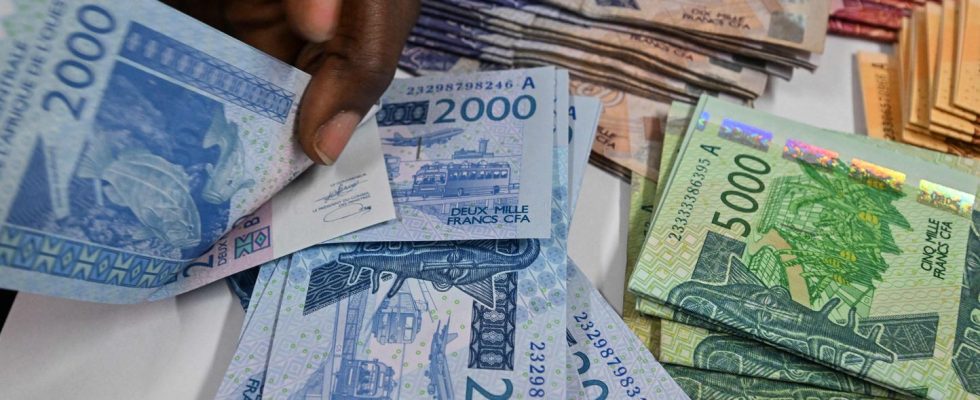Elected by a majority of the vote in the first round, the new president of Senegal Bassirou Diomaye Faye promised major changes for his country. Among them, the end of the CFA franc.
A desire that frequently comes up in the civil society of African countries using this currency. But what is the problem with the CFA franc? And how does it work ? We explain everything to you in three questions, and five minutes of reading, watch in hand.
Does this thing still exist?
For someone who only follows the economy from afar (we forgive you), it may seem anachronistic that a currency linked to France is still in force in Africa, several decades after decolonization. And yet, yes, the CFA franc still exists.
Currently, France has an agreement with three African partners.
- The West African Economic and Monetary Union (UEMOA), which includes eight countries: Benin, Burkina Faso, Ivory Coast, Guinea-Bissau, Mali, Niger, Senegal and Togo.
UEMOA uses the CFA franc, the franc of the African financial community
- The Central African Economic and Monetary Community (Cemac), which has six members: Cameroon, the Central African Republic, the Republic of Congo, Gabon, Equatorial Guinea and Chad.
Cemac uses another CFA franc, the African financial cooperation franc.
- The Comoros (yes, all by itself), which uses the Comoros franc.
There are therefore currently not one, but two CFA francs. They have the same value, the same initials, the same agreements with France (at least before, we will come back to that), but no, they are not the same, indicates Samuel Guérineau, teacher-researcher at Clermont Auvergne University and at the Center for Studies and Research in International Development.
How it works ?
Whatever the CFA franc, the latter has a fixed exchange rate with the euro. This is supposed to guarantee a currency, and therefore an economy, that is more stable in the face of uncertainties, because it is linked to a stronger – and therefore more solid – currency. This characteristic of the CFA franc is not surprising or specific. The majority of developing countries use a fixed exchange rate,” believes Samuel Guérineau, for the reasons mentioned earlier.
What is much more atypical, however, and even unique in the world, is the agreement with France. The latter guarantees to lend a strong currency, the euro, to these countries if necessary. In exchange, countries must store half of their currencies with the French Treasury.
Initially, the respective central banks, the Central Bank of West African States (BCEAO) and the Bank of Central African States, were even located in France, another party to the agreement. Samuel Guérineau observes with an understatement: “It did not give much sovereignty. » After the new agreements of 1973, the central banks were repatriated to Africa, the first step towards greater independence. “But there were still French representatives in the central bank bodies, which suggested French influence, even a right of veto. »
In 2019, new progress towards more independence for one of the two francs. UEMOA, of which Senegal is a part, is renegotiating the 1973 agreements. “There is no longer a representative of France in the bodies, African states are no longer obliged to deposit part of their reservations in France, and a name change is also mentioned. »
Why is the CFA franc controversial?
“The main economic criticisms point to an overvalued currency, which prevents African states from being competitive,” informs Samuel Guérineau. A dig that he finds unjustified in the long term. “When the euro is strong, it has sometimes penalized African countries. But when the euro is depreciated against the dollar, the latter are winners. Currently, exchange rate assessments do not show too high a level of overvaluation. »
Also, African countries would have a constrained monetary policy, because they are obliged to follow the economic policy of Europe. In fact, this constraint exists but capital controls leave some room for maneuver. More restrictive, countries cannot freely devalue their currencies as the Argentine president did for example. They must find an agreement with the other countries of the monetary union AND with France, which is a lot.
“The economic constraints resulting from the agreements with France are not in themselves much stronger than with the World Bank or the IMF, but it is certain that it is not the same thing to negotiate with an international institution and with a country,” pleads Samuel Guérineau. If the economic criticisms seem “exaggerated” to him, he recognizes: “Symbolically and politically, the CFA franc poses a real problem. »

